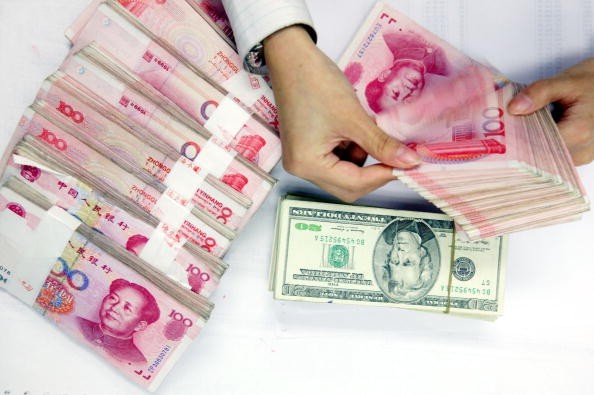Experts are no longer foreseeing a long-term depreciation of the yuan, following the efforts of China's central bank to fix the currency's central parity rate at the weakest level in six years on the first trading day after a weeklong holiday.
The People's Bank of China (BOC) set the midpoint of the currency at 6.7008 against the U.S. dollar on Monday--its weakest since September 2010 and about 0.3 percent weaker than September this year--which is the last trading day before the National Day holidays.
Analysts attributed the fluctuation to the strong volatility of major foreign currencies in the past week, with the British pound in particular, and growing market expectations of a possible hike of interest rates by the U.S. Federal Reserve by the end of the year.
The pound fell unexpectedly by more than 6 percent against the dollar on Friday.
"The offshore yuan, as a risk asset, cannot be divorced from the pound's impact," Wang Youxin, an economist at the Institute of International Finance, a BOC affiliate think tank, told China Daily in a report posted on Tuesday. "The depreciation pressure would be transferred to the onshore yuan".
Recent strong data from the U.S. raised expectations for a rate hike which also bolstered the dollar.
The non-manufacturing purchasing managers index (PMI) in the United State rose to 57.1 by the end of September, the highest level in a year, and the manufacturing PMI went back to the expansion range during the same period.
However, the depreciation of the yuan will not last long, according to Xia Yaxuan, chief economist at China Merchants Securities Co.
"The depreciation of the yuan is quite natural, with the recent stronger U.S. dollar," he said.
Xie played down speculation that the central bank would allow for 6.8 yuan per dollar by the end of 2016.
"It is only a reflection of its two-way volatility. As China steps up efforts to open its domestic capital market coupled with the progress made in the internationalization of yuan, market expectations will be more stable," he added.
Guan Tao, a senior BOC official said that the yuan's fluctuations are an indication that the country's exchange rate reform is moving it towards a more market-oriented mechanism.
"With signs of China's economy ticking up appearing in the past few months, the currency lacks fundamentals for long term deprecation," said Wang. "The exchange rate will not deviate too much from its current level."



























